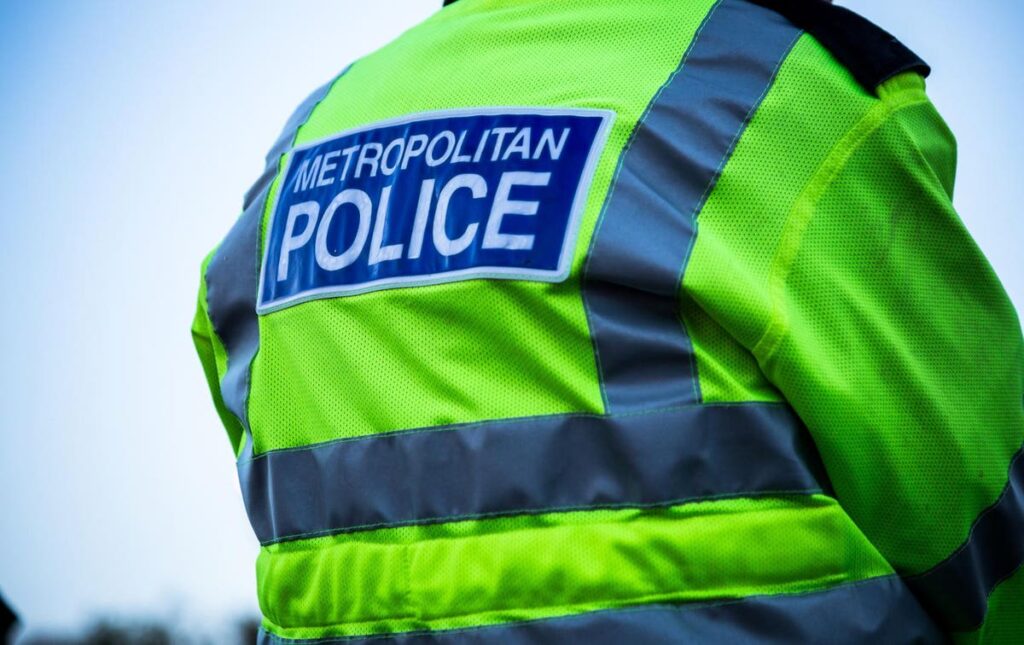Back view of a metropolitan police officer.
Police officers in London will soon stop responding to mental health incidents unless they believe there’s an “immediate threat to life”.
Chiefs say healthcare professionals should be attending many of these cases, leaving officers more time to solve and prevent crime.
Metropolitan Police chief Sir Mark Rowley wrote to health and social care partners last week to say he would stop officers responding to emergency calls about mental illness from the end of August.
But charities have questioned the speed of the move, which gives organisations around three months to adapt their services.
Police in the U.K. capital spend roughly 10,000 hours every month on mental health issues, Rowley wrote in the letter first reported by The Guardian. This can involve waiting for more than 12 hours with patients in need of hospital treatment.
Leaders instead want to implement a model called Right Care, Right Person, whereby police attend a much smaller proportion of mental health incidents. Calls that don’t meet certain criteria would instead be diverted to local health and social care organisations.
In Humberside in the north of England, this initiative has saved officers roughly 1,100 hours per month.
But progress towards such an approach appears to have been slower in the capital, prompting Rowley to introduce the deadline, according to the Guardian.
He wrote in his letter: “I have asked my team that the Met introduce RCRP this summer and withdraw from health related calls by no later than 31 August.
“I appreciate this may be challenging, but for the reasons I have set out above, the status quo is untenable.”
He added that Londoners were being “failed twice” by existing services. First, those in or at risk of mental health crisis are being met by police officers rather than healthcare professionals. Second, and a large amount of police time is being taken away from solving and preventing crime.
But mental health charity Mind says the plan’s tight deadline could leave vulnerable people “without support.” Health and social care capacity is itself already highly overstretched.
Mind CEO Sarah Hughes said in a statement emailed to Forbes: “Mental health services have been chronically underfunded for decades and much more needs to be done to bring services to the standard where everybody can get the support they need from the National Health Service.
“Any changes to supporting people in a mental health crisis need to be thought through carefully and collectively so that no one is left without support. New plans need to be rolled out with enough time to make sure strong partnerships are built at a local level so that people with mental health problems don’t pay the price for this kind of change.”
Hughes also emphasised it was appropriate to consider mental health as police business, given officers’ involvement in “sectioning”.
In England, people are sometimes sectioned — or kept in hospital — under a law called the Mental Health. This may happen if a person is considered a risk to themselves or to others, for example.
“It is right to say that when people are in a mental health crisis, they are often at their most vulnerable, so really need the right support,” Hughes said. “It is also right to say that mental health is core police business, for example, only the police can publicly section people in mental health crisis.”
But adequately resourcing the national health service and other parts of the health and social system, she added, was also crucial to getting people in crisis treated quickly.


